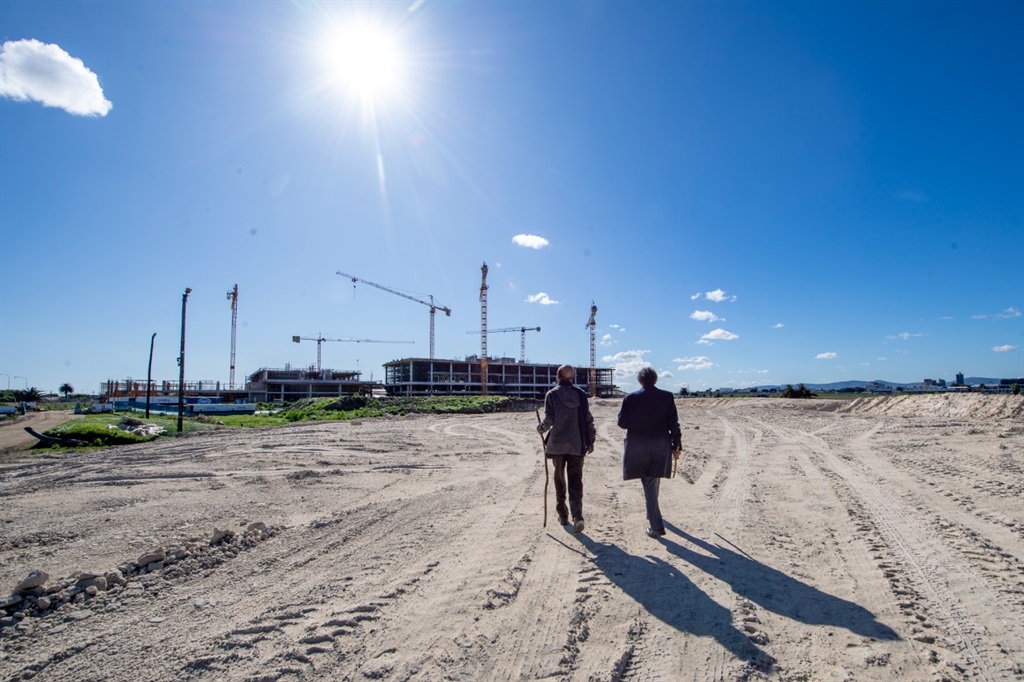
The attempted erasure of the Khoekhoe and San failed because the religion, the customs, the language, and the knowledge system survived on the margins of the colonial and apartheid state. It has been passed down from one generation to the next, writes Jacob Cloete.
One of the most significant events in my life was growing up in Namaqualand. I was born and raised on a farm called Kwanous. I was raised by my grandparents, who were farm workers. It was on this farm that I was introduced to my Khoekhoe identity – an identity that the education system, society and the state stripped from me.
I remember my grandmother always telling us she was a "Baster", and my grandfather told us that his father spoke a click language. However, my great-grandfather refused to teach my grandfather and his siblings the language because he knew the violence that came with it. While my grandmother grew up in Namaqualand in the Kamiesberg, my grandfather grew up in the 'Boesmanland'. They lived and negotiated their existence in these two regions. For them, this was home.
Even though my grandparents were classified by apartheid as coloured, it was always foreign to them. They never used the coloured identity to refer to themselves, their family, or their ancestors. They also never raised us to be coloured people. Instead, they kept their Khoekhoe identity alive. My grandfather's task was to teach the ancient knowledge of the veld, and my grandmother's task was to teach us some aspects of the religion and customs of the Khoekhoe. Many of their teachings contained traces of the Khoekhoe language.
Exposed to culture
My grandparents trusted traditional medicinal practices more than modern Western medicine. Growing up, the medicine I was exposed to was traditional medicine. For every ailment, there was a traditional medicine that could treat it. My grandmother taught me the different medicinal plants and their purposes. She also showed me how to prepare and administer them. My grandfather made sure that we were exposed to the culture. He ensured that we knew the |khâba ra (a traditional dance) and had a sense of belonging.
It was when I entered the primary education system that I encountered another view of our values. It was also here that I encountered the 'backward' and 'uncivilised' ‘Hottentot' and 'Boesman' figures. It was at school that I realised that people who lived in towns looked down upon us. Many called us ‘Boesman’ or ‘plaasjapie’. It is in the basic education system that my first education (the education of my grandparents) was rendered backwards and discarded. Instead, we were forced to learn of the arrival of Jan van Riebeeck and the 'civilising' mission he started.
READ | First People: The lost history of the Khoisan explored in new book
We were conditioned to accept everything that was written in textbooks. Your grades and progress in the primary education system depended on how well you could recite what was written in these textbooks. And slowly but surely, the erasure of my Khoekhoe past took place. It had to make space for the coloured identity. They wanted us to be ashamed of our ancestry so we could reject it. We had to make space for the so-called coloured identity, a 'civilised’ version of the 'Hottentot' and 'Boesman' identities. This version made the Khoekhoe and San landless figures with no history or real sense of belonging to South Africa.
Knowledge systems survived
When I entered the university system, I realised they appropriated the knowledge of the Khoekhoe and San. The university presents itself as the custodian of my ancestral knowledge. Some academics and disciplines are now the authoritative voices on the Khoekhoe and San knowledge systems. It became clear that the university was complicit in the attempt to erase the Khoekhoe and San. Some universities are now the custodians and beneficiaries of the Khoekhoe and San artefacts and knowledge. Many research papers, books, theses and patents based on Khoekhoe and San knowledge are now universities' intellectual property.
READ | The untold story of the Khoekhoe: Rehane Abrahams' 'extraordinary' memories from her new series
However, they were unsuccessful in their attempted erasure because the religion, the customs, the language, and the knowledge system survived on the margins of the colonial and apartheid state. It has been passed down from one generation to the next. For example, the |khâba ra is considered one of the oldest dances in Southern Africa. This dance is still practised today. Since choreography is the notation of dancing, the |khâba ra wrote a historical record of the Khoekhoe people in their bodies. The |khâba ra preserved the memories and histories of the colonised in the bodies of the colonised. It tells the story of Khoekhoe and San.
I owe my being to the Khoi and the San whose desolate souls haunt the great expanses of the beautiful Cape - they who fell victim to the most merciless genocide our native land has ever seen; they who were the first to lose their lives in the struggle to defend our freedom and independence and they who, as a people, perished in the result.
Today, as a country, we keep an audible silence about these ancestors of the generations that live, fearful to admit the horror of a former deed, seeking to obliterate from our memories a cruel occurrence which, in its remembering, should teach us not and never to be inhuman again.
There is a contemporary trend, and that is to make us feel guilty because we lost our native languages and do not look like museum artefacts. To those trying to shame Khoekhoe and San people, because they do not look like the caricatures that the university and museums created, I say this is another attempt to silence us and discredit the horror of the erasure. You are seeking to obliterate from your memory a cruel occurrence. We are not images that the university and museums created.
We are more than that. See us for who we are and not as the bastards of white people. That is a racist discourse that was created at university level.
We are not dead! We are not frozen in time! We are alive!
I want to conclude with the words of the traditional Khoekhoe musician, Oom Pieter van der Westhuizen: "My asbrood is nie te koop." It means my culture, language, religion, and knowledge are not for sale.
Toa tama !khams ge. (The struggle continues.)
- Dr Jacob Cloete is based at the University of the Western Cape and is the author of the upcoming book, "The Attempted Erasure of the Khoekhoe and San.
*Want to respond to the columnist? Send your letter or article to opinions@news24.com with your name and town or province. You are welcome to also send a profile picture. We encourage a diversity of voices and views in our readers' submissions and reserve the right not to publish any and all submissions received.
Disclaimer: News24 encourages freedom of speech and the expression of diverse views. The views of columnists published on News24 are therefore their own and do not necessarily represent the views of News24




 Publications
Publications
 Partners
Partners
























